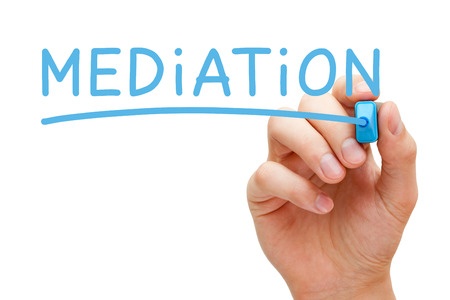
Personal injury and wrongful death claims for $25,000 or more must go through mediation before a North Carolina Superior Court will hold a civil trial. The state legislature put this requirement for mandatory pretrial mediation in place in 1995 in order to keep court dockets clear of smaller-dollar cases.
As a practical matter, going into mediation does mean that the personal injury or wrongful death victim must accept an inadequate or unjust settlement. If a mutually satisfactory outcome cannot be achieved through mediation, the case will proceed to a trial in front of a judge or, at either party’s request, a jury.
LEARN MORE
- Many States Have Adopted Voluntary Mediation in Personal Injury Cases
- A Virginia Wrongful Death Attorney Discusses Successful Mediations
- Methods Virginia Personal Injury Lawyers Use to Achieve the Best Results for Their Clients
What the Law Says
Section 7A-38.1 of the North Carolina General Statutes spells out the requirement for mediation in certain criminal cases and civil lawsuits. To quote the state law,
The General Assembly finds that a system of court-ordered mediated settlement conferences should be established to facilitate the settlement of superior court civil actions and to make civil litigation more economical, efficient, and satisfactory to litigants and the State. Therefore, this section is enacted to require parties to superior court civil actions and their representatives to attend a pretrial, mediated settlement conference conducted.
The law allows plaintiffs and defendant (“respondents” in legalese) to settle at any time prior to a scheduled mediation. When that is not possible, all parties to the case must attend the mediation session or receive permission from the court to be absent. Simply skipping the mediation session can result in contempt of court charges and fines.
How Civil Mediation Work in North Carolina
The North Carolina Dispute Resolution Commission and North Carolina Supreme Court set the rules and enforce procedures for pretrial mediation. Personal injury and wrongful death attorneys are required to know and follow the rules, and a good lawyer will make sure their client receives a detailed explanation of the proceedings before they begin.
Generally, what the plaintiff in a civil lawsuit needs to know about mediation is that the session is much less formal than a court hearing. A mediator, instead of a judge, presides. Under law, the person named as the mediator must not have a personal or professional stake in the outcome. Additionally, mediators cannot impose rulings or demand that either party accept an offer.
Legal teams for the plaintiff and the plaintiffs have the opportunity to agree to a mediator, or they can ask the court to assign one. Retired judges, a legal professional with knowledge of the matters under dispute or a certified mediator will lead the session.
While both sides can present evidence and present arguments, the mediation primarily takes the form of a discussion and negotiation over what the plaintiff and respondents consider an acceptable result. The plaintiff has the final say regarding whether to accept a settlement, but their lawyer can offer opinions over the wisdom of a decision.
Reaching a mutually acceptable resolution and signing an agreement ends the case. If mediation fails, settlement negotiations can continue leading up to, and even during, the civil trial.
EJL